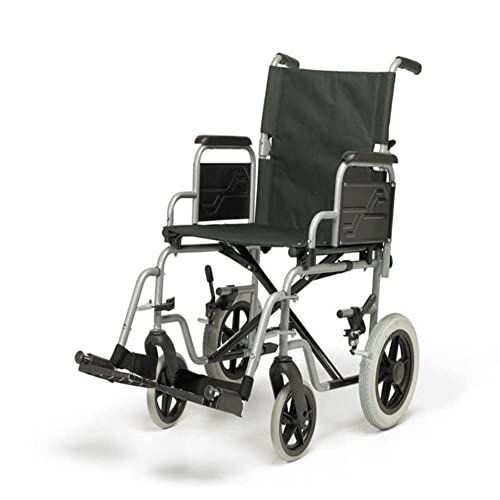- Home Page
- About Reitaj
- Our Projects
- Our Services
- Finishing and decoration
- Design
- Architectural and constructions
- Executive drawings, inventory and value engineering
- Time programs, cost control, risk analysis and performance monitoring
- Urban planning
- Interface design
- Interior design
- Residential and hotel
- Commercial and administrative
- Educational and hospitals
- Factories and public buildings
- Locations coordination
- Integrated engineering supervision
- Contracting
- Our products and items of implementation and finishing
- Real estate investment
- Real estate
- Media Center
- Our offers
- Common inquiries
- Contact Us
mobility_scooters_for_sale0645
About mobility_scooters_for_sale0645
Why You Should Be Working With This Mobility Scooter UK
Mobility Scooters in the UK: A Comprehensive Guide
In the United Kingdom, mobility scooters are ending up being an increasingly popular ways of transport for people with mobility issues, supplying them with the liberty to browse their communities separately. These motorized lorries are developed to assist those who have difficulty strolling or using a manual wheelchair, providing a useful and comfortable solution for daily travel. This article digs into the world of mobility scooters in the UK, exploring their advantages, legal requirements, and how to choose the ideal one.
Introduction to Mobility Scooters
A mobility scooter is a battery-powered lorry that generally has 3 or 4 wheels, a seat for the driver, and handlebars for steering. They are developed to be simple to use and keep, making them ideal for older grownups and individuals with specials needs who desire to maintain their self-reliance. Mobility scooters can be found in various sizes and models, each catering to various needs and preferences.

Advantages of Mobility Scooters
- Increased Independence: Mobility scooters allow users to take a trip longer ranges without the physical stress connected with strolling or using a manual wheelchair. This self-reliance can significantly improve their quality of life.
- Economical: Compared to other motorized lorries, mobility scooters are reasonably cost effective. They likewise require very little upkeep, which can conserve users a lot of cash in the long run.
- Reduce of Use: Most mobility scooters are created to be user-friendly, with user-friendly controls and comfy seating. They are typically lightweight and can be easily taken apart for transportation.
- Enhanced Social Interaction: By allowing users to venture out more often, mobility scooters can help in reducing sensations of isolation and solitude, promoting social connections and community involvement.
- Boosted Safety: Mobility scooters are equipped with features such as headlights, brake lights, and horns, making them safer for use on roads and in public spaces.
Kinds Of Mobility Scooters
When selecting a mobility scooter, it’s essential to think about the type that best fits your requirements. Here are the main types available in the UK:
Class 2 Mobility Scooters:
- Speed: Limited to 4 miles per hour (6.4 km/h)
- Usage: Suitable for pavements and pedestrian areas
- Features: Compact and light-weight, collapsible for simple transportation
Class 3 Mobility Scooters:
- Speed: Can rise to 8 mph (12.9 km/h)
- Usage: Suitable for both pavements and roads, offered they are signed up and guaranteed
- Functions: Sturdier build, frequently with more innovative functions like suspension and bigger batteries
Heavy Duty Mobility Scooters:
- Capacity: Designed to support users weighing as much as 400 pounds (181 kg)
- Usage: Ideal for those who need a robust and resilient scooter
- Functions: Reinforced frame, wider seat, and improved stability
Off-Road Mobility Scooters:
- Terrain: Built to manage rough and irregular surface areas
- Usage: Suitable for users who take pleasure in outside activities like hiking or fishing
- Features: All-terrain tires, high ground clearance, and powerful motors
Legal Requirements for Mobility Scooters in the UK
Using a mobility scooter in the UK comes with particular legal obligations. Here are the essential points to consider:
- Registration and Insurance:
- Class 2 Scooters: No registration or insurance needed
- Class 3 Scooters: Must be registered with the DVLA, insured, and show a valid MOT certificate if utilized on roads
- Driver Requirements:
- Age: Users must be at least 14 years of ages
- Health: No particular health conditions are required, but users should be able to control the scooter safely
- Speed Limits:
- Class 2 Scooters: 4 miles per hour (6.4 km/h) on pavements
- Class 3 Scooters: 8 mph (12.9 km/h) on roads, 4 miles per hour on pavements
- Safety Equipment:
- Lights: All scooters utilized on roads need to have front and rear lights, indications, and a horn
- Reflectors: Required for usage on roadways, specifically throughout low visibility conditions
- Tax and Parking:
- Tax: Class 3 scooters are exempt from automobile tax
- Parking: Users can park in designated disabled parking spaces with a legitimate Blue Badge
How to Choose the Right Mobility Scooter
Picking the right mobility scooter includes thinking about a number of elements:
Mobility Needs:
- Range: How far do you need to travel?
- Surface: Will you be utilizing the scooter on pavements, roads, or off-road?
- Weight Capacity: What is the maximum weight the scooter needs to support?
Budget:
- Initial Cost: Mobility scooters can range from a couple of hundred to numerous thousand pounds
- Continuous Costs: Consider the expense of batteries, maintenance, and insurance
Features:
- Comfort: Look for a scooter with a comfy seat and adjustable controls
- Storage: Some scooters provide extra storage for shopping bags or personal products
- Portability: If you require to transfer the scooter, pick a model that is lightweight and collapsible
Reputation and Support:
- Brand: Research reliable brand names known for their quality and dependability
- Guarantee: Check the service warranty duration and what it covers
- Consumer Support: Ensure the maker or seller provides good consumer support and service
Frequently Asked Questions About Mobility Scooters in the UK
Do I require a license to drive a mobility scooter?
- No, you do not need a driving license to run a mobility scooter in the UK. However, Class 3 scooters must be signed up with the DVLA and guaranteed if used on roads.
Can I utilize a mobility scooter on the pavement?
- Yes, both Class 2 and Class 3 scooters are permitted on pavements, however Class 3 scooters are restricted to 4 miles per hour.
Are there any constraints on where I can use a mobility scooter?
- Class 2 scooters are restricted to pavements and pedestrian areas. Class 3 scooters can be utilized on roads, however they should fulfill particular legal requirements.
How do I maintain my mobility scooter?
- Routine upkeep includes checking battery levels, tire pressure, and brake functionality. It’s likewise crucial to clean the scooter frequently and store it in a dry location.
Can I get a mobility scooter through the NHS?
- The NHS offers mobility scooters through the Disabled Living Allowance (DLA) or Personal Independence Payment (PIP). You can also purchase or rent a scooter from a private retailer.
Is a mobility scooter tax-deductible?

- Sometimes, the expense of a mobility scooter can be claimed as a medical expenditure. Consult a financial advisor for specific guidance.
Tips for Using a Mobility Scooter Safely
- Wear Appropriate Clothing:
- Wear comfy and weather-appropriate clothes. Think about wearing a high-visibility jacket when using the scooter on roads.
- Preserve the Scooter:
- Regularly examine the battery, tires, and brakes to ensure the scooter is in excellent working condition.
- Follow Traffic Rules:
- Obey traffic signs and signals, and utilize designated pedestrian and cycle paths when possible.
- Usage Safety Equipment:
- Always utilize the headlights, brake lights, and horn, especially during low visibility conditions.
- Be Mindful of Others:
- Be polite to pedestrians and other road users. Decrease when approaching congested locations.
Mobility scooters are an important tool for people in the UK who deal with mobility challenges. They use a variety of benefits, from increased independence to enhanced security, making them a popular option for older adults and people with disabilities. By comprehending the different kinds of scooters, legal requirements, and how to select the right one, users can delight in the flexibility and benefit these vehicles offer. Whether for day-to-day errands or leisure activities, a mobility scooter can considerably improve the lifestyle for many people.
Additional Resources
- DVLA Website: For info on signing up and guaranteeing a Class 3 mobility scooter
- Age UK: Offers advice and assistance for older adults thinking about a mobility scooter
- Disability Rights UK: Provides guidance on accessing mobility scooters through monetary support programs
By making the effort to research and select the best mobility scooter, users can enjoy greater self-reliance and a more active way of life.
Sort by:
No listing found.


